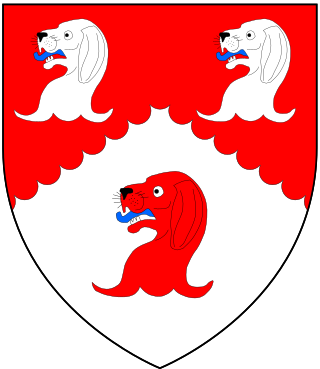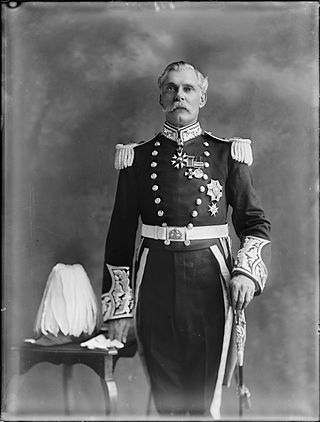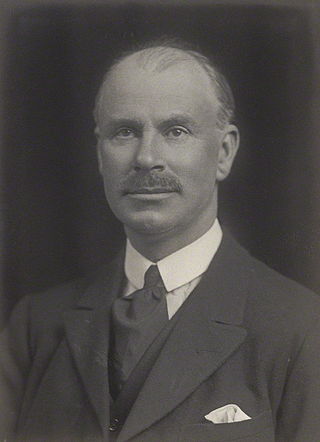
The Peerage Act 1963 is an Act of the Parliament of the United Kingdom that permits female hereditary peers and all Scottish hereditary peers to sit in the House of Lords and allows newly inherited hereditary peerages to be disclaimed.

Earl Winterton, in the County of Galway, is a title in the Peerage of Ireland. It was created in 1766 for Edward Turnour, 1st Baron Winterton, who represented Bramber in the House of Commons. Turnour had already been created Baron Winterton, of Gort in the County of Galway, in 1761, and was made Viscount Turnour, of Gort in the County of Galway, at the same time as he was given the earldom. These titles are also in the Peerage of Ireland. Born Edward Turnour Garth, Lord Winterton was the son of Joseph Garth and Sarah Garth, daughter of Francis Gee and his wife Sarah, daughter of Sir Edward Turnour, Member of Parliament for Orford, elder son of Sir Edward Turnour, Speaker of the House of Commons from 1661 to 1671. His mother was sole heiress to the Turnor estates and on her death in 1744 he assumed by Royal licence the surname of Turnour.

Earl of Durham is a title in the Peerage of the United Kingdom. It was created in 1833 for the Whig politician and colonial official John Lambton, 1st Baron Durham. Known as "Radical Jack", he played a leading role in the passing of the Great Reform Act of 1832. As Governor General of British North America, he was the author of the famous Report on the Affairs of British North America, known in Canada as the Durham Report. He had already been created Baron Durham, of the City of Durham and of Lambton Castle in the County Palatine of Durham, in 1828. He was created Viscount Lambton at the same time that he was raised to the earldom. These titles are also in the Peerage of the United Kingdom.
Viscount Camrose, of Hackwood Park in the County of Hampshire, is a title in the Peerage of the United Kingdom. It was created on 20 January 1941 for the prominent newspaper magnate William Berry, 1st Baron Camrose. He had previously received the award of Baronet, of Long Cross in the County of Surrey, in the Baronetage of the United Kingdom, on 4 July 1921, and was created Baron Camrose, of Long Cross in the County of Surrey, on 19 June 1929, in the Peerage of the United Kingdom. His second son, the third Viscount, disclaimed the peerages in 1995 on succeeding his elder brother. However, he had already been created a life peer as Baron Hartwell, of Peterborough Court in the City of London, on 19 January 1968. On his death in 2001 the life peerage became extinct while he was succeeded in the other titles by his eldest son, the fourth Viscount. The first three Viscounts all headed The Daily Telegraph at one point, the first having purchased it from Harry Levy-Lawson, 1st Viscount Burnham, but in the 1980s they lost control to Conrad Black.

Baron Southampton, of Southampton in the County of Southampton, is a title in the Peerage of Great Britain. It was created in 1780 for the soldier and politician Charles FitzRoy. He was the third son of Lord Augustus FitzRoy, second son of Charles FitzRoy, 2nd Duke of Grafton, while Prime Minister Augustus FitzRoy, 3rd Duke of Grafton was his elder brother. Lord Southampton was also the great-great-grandson of King Charles II by his mistress Barbara Palmer, 1st Duchess of Cleveland. The Southampton title had previously been created for Charles FitzRoy, eldest natural son of Charles II and the Duchess of Cleveland and the elder brother of Henry FitzRoy, 1st Duke of Grafton, but had become extinct in 1774 on the death of his son William FitzRoy, 3rd Duke of Cleveland and 2nd Duke of Southampton, six years before the creation of the barony of Southampton.

Baron Feversham is a title that has been created twice, once in the Peerage of Great Britain and once in the Peerage of the United Kingdom. The first creation, in the Peerage of Great Britain, came in 1747 when Anthony Duncombe, who had earlier represented Salisbury and Downton in the House of Commons, was made Lord Feversham, Baron of Downton, in the County of Wilts. He had previously inherited half of the enormous fortune of his uncle Sir Charles Duncombe. However, Lord Feversham had no sons and the barony became extinct on his death in 1763. The peerage was revived in the Peerage of the United Kingdom in 1826 in favour of his kinsman Charles Duncombe, who was created Baron Feversham, of Duncombe Park in the County of York. He was a former Member of Parliament for Shaftesbury, Aldborough, Heytesbury and Newport. Duncombe was the grandson of Thomas Duncombe, son of John Brown by his wife Ursula Duncombe, aunt of the first Baron of the 1747 creation. Ursula had inherited the other half of her brother Sir Charles Duncombe's fortune. Lord Feversham son, the second Baron, sat as a Conservative Member of Parliament for Yorkshire and the North Riding of Yorkshire.

Baron Stratheden, of Cupar in the County of Fife, and Baron Campbell, of St Andrews in the County of Fife, are two titles in the Peerage of the United Kingdom. The titles were created in 1836 and 1841 respectively. The barony of Stratheden was created for the Hon. Mary, Lady Campbell, wife of the prominent lawyer and Whig politician Sir John Campbell, and daughter of James Scarlett, 1st Baron Abinger. Sir John Campbell, who in 1836 served as Attorney-General in the Whig administration of Lord Melbourne, had twice been overlooked for the office of Master of the Rolls, and was about to tender his resignation to Melbourne as a result of this. However, he was talked out of resigning when it was decided that, in recognition of the value of his services, his wife should be raised to the peerage. Five years later he was himself created Baron Campbell on his appointment as Lord Chancellor of Ireland. He later held office as Lord High Chancellor of Great Britain.

Baron Northbourne, of Betteshanger in the County of Kent, is a title in the Peerage of the United Kingdom. It was created in 1884 for Sir Walter James, 2nd Baronet, who had earlier represented Kingston upon Hull in the House of Commons as a Conservative. His son, the second Baron, sat as a Liberal Member of Parliament for Gateshead. The latter's great-grandson, the fifth Baron, who succeeded his father in 1982, was one of the ninety elected hereditary peers that were allowed to remain in the House of Lords after the passing of the House of Lords Act 1999, and sat as a cross-bencher until his retirement in 2018. As of 2019, the titles are held by his son, the sixth baron, who succeeded his father in that year.
Baron Silkin, of Dulwich in the County of London, is a title in the Peerage of the United Kingdom. It was created on 4 July 1950 for the solicitor and Labour politician Lewis Silkin. The peerage was disclaimed by both his eldest son, the second Baron, and the latter's nephew, the third Baron. When the third Baron disclaimed the title in 2002, the barony of Silkin became the first peerage ever to be disclaimed twice; and the only disclaimer since the House of Lords Act 1999
Baron Monkswell, of Monkswell in the County of Devon, is a title in the Peerage of the United Kingdom. It was created in 1885 for the lawyer and Liberal politician Sir Robert Collier. His eldest son, the second Baron, served as Under-Secretary of State for War in 1895 in the Liberal administration of Lord Rosebery. His grandson, the fourth Baron, disclaimed the peerage on 7 April 1964. He had earlier been a member of the Essex County Council. As of 2020 the title is held by his grandson, the sixth Baron, who succeeded in that year.

Baron Merthyr, of Senghenydd in the County of Glamorgan, is a title in the Peerage of the United Kingdom. It was created in 1911 for the Welsh coal mining magnate Sir William Lewis, 1st Baronet. He had already been created a baronet, of Nantgwyne in the County of Glamorgan, in 1896. The barony is named after the town of Merthyr Tydfil, where Lewis was born. Lord Merthyr's grandson, the third Baron, was Chairman of Committees in the House of Lords from 1957 to 1965 and a Deputy Speaker from 1957 to 1974. The latter was succeeded by his son, the fourth Baron. He disclaimed the peerage for life on 26 April 1977, three weeks after succeeding his father. He did not use his title of baronet either. He died on 5 August 2015.

Baron Morris, of St John's in the Dominion of Newfoundland and of the City of Waterford, is a hereditary barony in the Peerage of the United Kingdom which was created on 15 January 1918 for the lawyer and politician Sir Edward Morris upon his retirement as Prime Minister of Newfoundland.

Baron Beaverbrook, of Beaverbrook in the Province of New Brunswick in the Dominion of Canada and of Cherkley in the County of Surrey, is a title in the Peerage of the United Kingdom. It was created in 1917 for the prominent media owner and politician Sir Max Aitken, 1st Baronet. He had already been created a baronet, of Cherkley in the County of Surrey, on 3 July 1916. When Aitken died, his son disclaimed the barony three days later, stating that "there shall only be one Lord Beaverbrook in my lifetime". Since 1985, the title has been held by the latter's son, the third Baron.

Baron Rothschild, of Tring in the County of Hertfordshire, is a title in the Peerage of the United Kingdom. It was created in 1885 for Sir Nathan Rothschild, 2nd Baronet, a member of the Rothschild banking family. He was the first Jewish member of the House of Lords not to have previously converted to Christianity. The current holder of the title is Nathaniel Rothschild, 5th Baron Rothschild, who inherited the barony in February 2024.
Baron Rockley, of Lytchett Heath in the County of Dorset, is a title in the peerage of the United Kingdom, created on 11 January 1934 for the Conservative politician Sir Evelyn Cecil, who previously represented Hertfordshire East, Aston Manor and Birmingham Aston in the House of Commons.

John Edward Poynder Grigg was a British writer, historian and politician. He was the 2nd Baron Altrincham from 1955 until he disclaimed that title under the Peerage Act on the day it received Royal Assent in 1963.

John Poynder Dickson-Poynder, 1st Baron Islington, born John Poynder Dickson and known as Sir John Poynder Dickson-Poynder from 1884 to 1910, was a British politician. He was Governor of New Zealand between 1910 and 1912.

Edward William Macleay Grigg, 1st Baron Altrincham, was a British colonial administrator and politician.

Joan Alice Katherine Grigg, Baroness Altrincham was a British organiser of maternity and nursing services in Kenya. She disagreed with the Governor of Kenya about race issues and she established medical facilities for all races.

Edward Sebastian Grigg, 4th Baron Altrincham, is a British hereditary peer and Conservative member of the House of Lords.
 Edward William MacLeay Grigg, 1st Baron Altrincham (1879–1955)
Edward William MacLeay Grigg, 1st Baron Altrincham (1879–1955) John Edward Poynder Grigg, 2nd Baron Altrincham (1924–2001) (disclaimed 1963)
John Edward Poynder Grigg, 2nd Baron Altrincham (1924–2001) (disclaimed 1963) Anthony Ulrick David Dundas Grigg, 3rd Baron Altrincham (1934–2020)
Anthony Ulrick David Dundas Grigg, 3rd Baron Altrincham (1934–2020) (Edward) Sebastian Grigg, 4th Baron Altrincham (born 1965)
(Edward) Sebastian Grigg, 4th Baron Altrincham (born 1965) 











